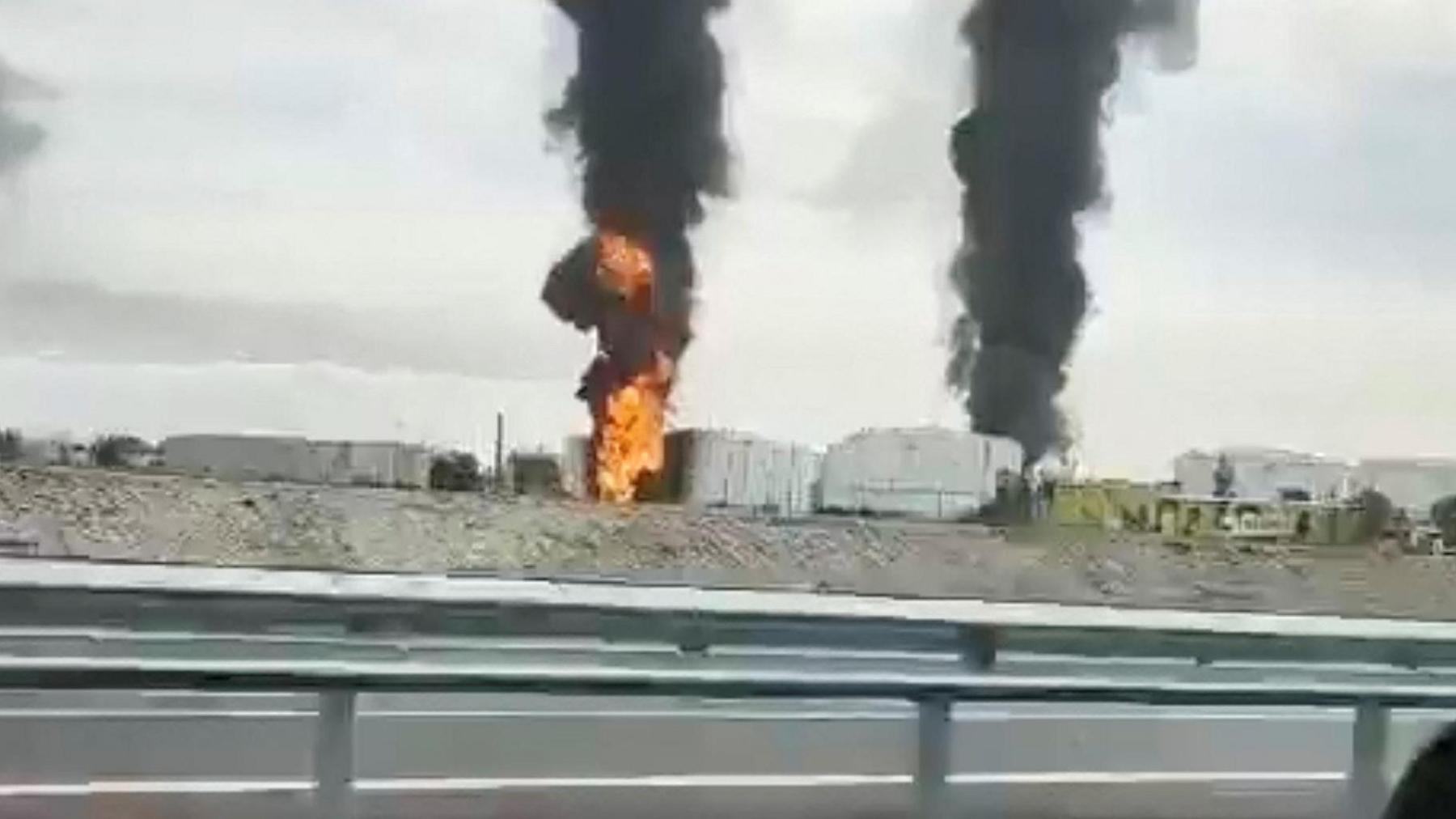Russian strike kills eight in fresh attack on Ukrainian port
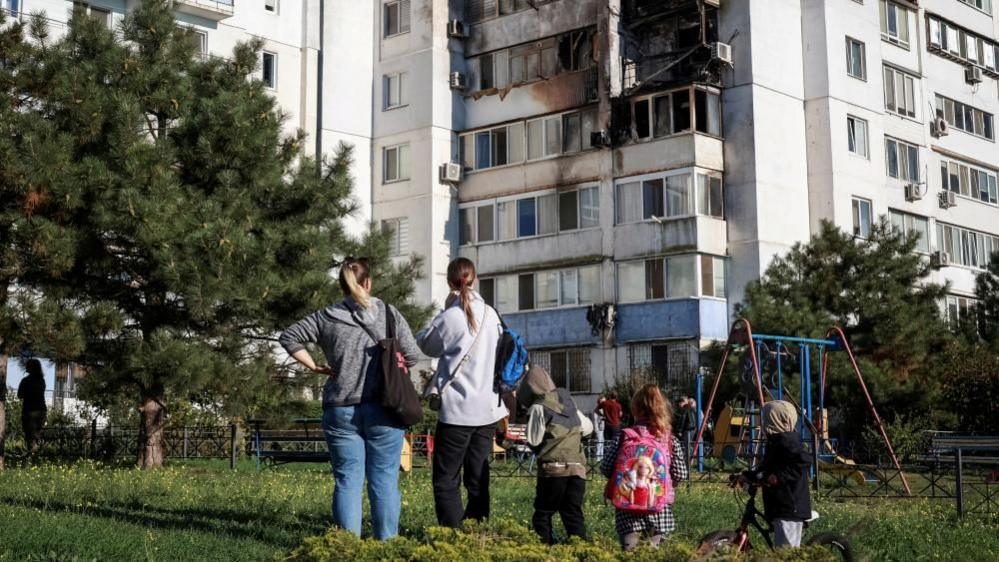
Russian missiles have targeted Ukraine's Odesa region all week
- Published
Russian missiles have hit a civilian container ship at a port in Ukraine's Odesa region, killing eight people, according to local officials.
"This is the third attack on a civilian vessel in the past four days," said the region's head, Oleh Kiper, who described it as "yet another crime" by an "insidious enemy".
He said Russia had targeted port infrastructure and all the victims were Ukrainian. A 46-year-old port employee and another man, aged 26, died of their injuries in hospital, while several others were wounded.
The wave of strikes on Ukraine's Black Sea ports coincided with a European tour by President Volodymyr Zelensky, who is visiting leaders in London, Paris, Rome and Berlin.
In Downing Street on Thursday, he met UK Prime Minister Sir Keir Starmer and Nato's new Secretary General Mark Rutte, who warned this week that Ukraine could be facing its toughest winter since the start of Russia's full-scale invasion in 2022.
Zelensky had been due to meet US President Joe Biden along with other Western allies in Berlin on Saturday, but Biden cancelled his trip because of the threat to the US from Hurricane Milton.
That is a blow for Ukraine, less than a month away from the US elections and with increasing concerns over the continued support of key allies.
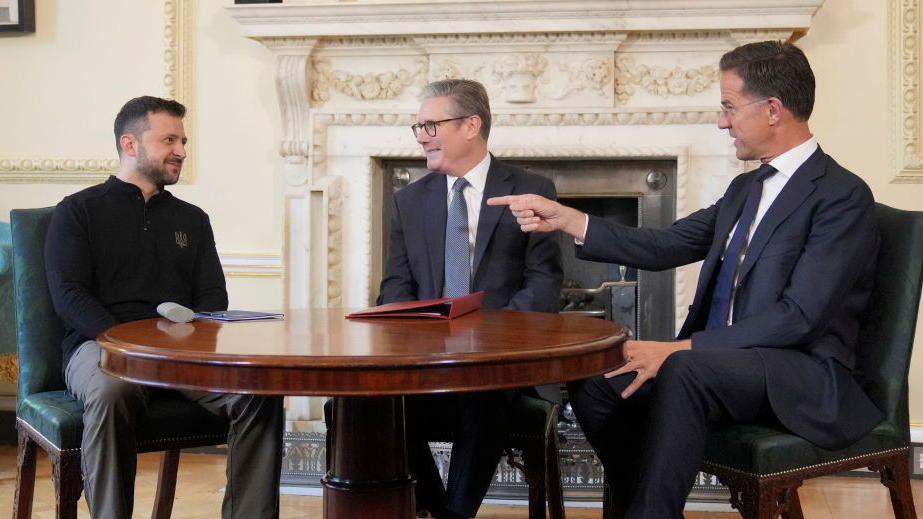
Zelensky met the UK prime minister and Nato secretary-general in Downing Street on Thursday
Zelensky played down any disappointment before his trip to London though.
"Any leader in similar circumstances would have stayed in their country," he told journalists in Croatia on Wednesday. He expected a "new schedule" for the leaders’ meeting to be prepared shortly.
Later on Thursday, Zelensky held talks with French President Emmanuel Macron in Paris, and then went to Rome to meet Italian Prime Minister Georgia Meloni.
The Italian leader announced that Rome would host the next "recovery conference" to help Ukraine's reconstruction in July 2025.
On Friday, Zelensky will meet Pope Francis at the Vatican before heading to Germany to Berlin for talks with German Chancellor Olaf Scholz.
Starmer holding meeting with Zelensky at No 10
- Published10 October 2024
Russia's overnight attacks on Ukraine also wounded several people in the southern city of Zaporizhzhia.
Twenty-nine homes were destroyed and pictures released by regional officials show a giant crater in the mud, with bricks and wood strewn all around.
Warnings of a glide-bomb attack had come at 06:00 local time (04:00 BST) on Thursday. Residents were left looking at the ruins in their dressing gowns and slippers.
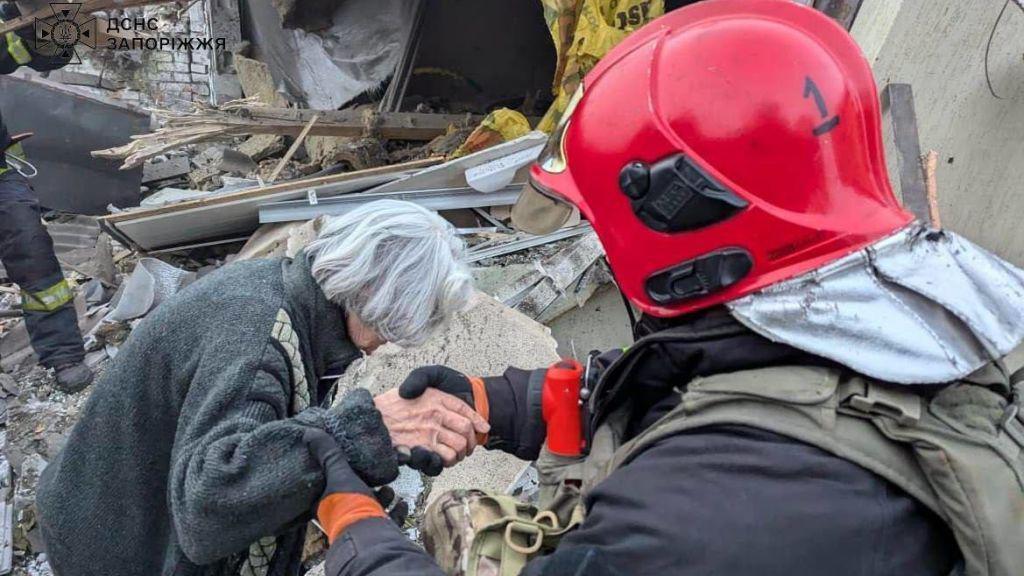
Meanwhile, Ukrainian drones targeted a military airfield in the Maikop region of southern Russia. Local officials evacuated 40 people from a nearby village.
Russia's missile strike on the Odesa region hit a Panamanian-registered ship on Wednesday night, Oleh Kiper said - two days after a Palau-flagged ship was attacked, killing one person on board.
Another ship, which was said to be carrying 6,000 tonnes of corn, was attacked on Sunday.
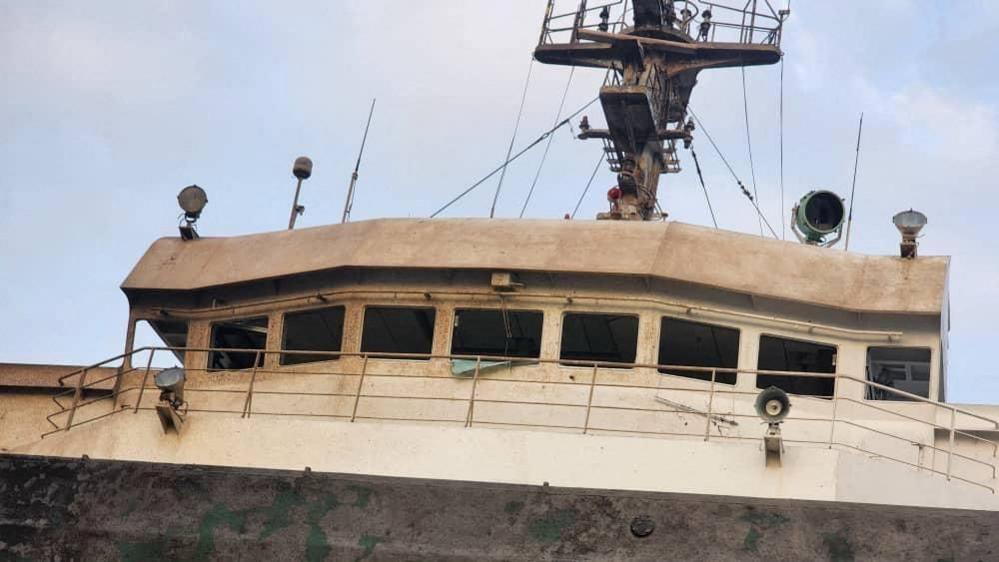
The Ukrainian government says Russia's attacks on Odesa's Black Sea ports are aiming to destroy grain exports that guarantee international food security, at a key time of year following the harvest.
Russia has not commented publicly on its latest attacks. The Kremlin spokesman, Dmitry Peskov, was not asked about them in his daily briefing with journalists in Moscow - and volunteered no information.
"It feels like they are focusing on the port again, like last summer," Diana, a local resident, told the BBC.
She lives close to the waterfront and heard the missile strikes this week. "I feel this anxiety, and I feel it increases day by day. I can’t say my general state is calm."
Diana said Iranian-made Shahed drones were also now launched at Odesa "almost every night", buzzing ominously overhead before they swooped or were shot down by air defences.
But she is worried about the way out of this war, too, as President Zelensky travels the world presenting what he’s calling a "Victory Plan".
"It’s more like anger, because we have no idea what this plan is about," she explained.
"We can only assume that it would be some kind of compromise. But Russia has already caused so much damage and killed so many people. I’m not sure, after this scale of tragedy and pain, our society would accept any kind of compromise in Russia’s favour."
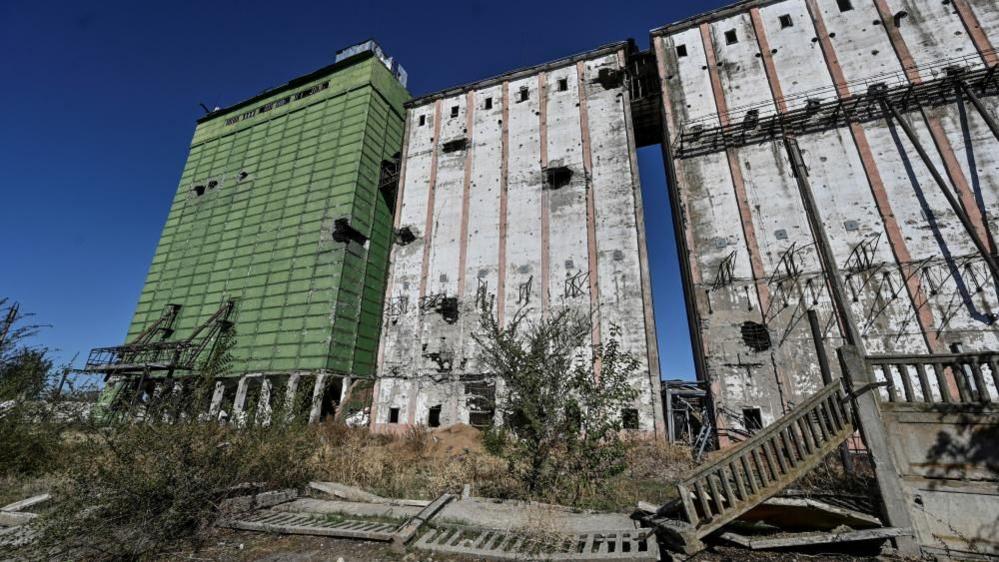
This grain elevator has been badly damaged by a Russian strike in Orikhiv in the Zaporizhzhia region
Ukraine’s original "peace formula" included restoring Ukraine’s territorial integrity and security commitments - but the details of Zelensky’s current plan have not been made public.
"This war has to end," Oleksandr, another resident of the Odesa region, told the BBC. "It’s been tough and bloody and it feels like it’s going in spirals, and now it feels like the level of violence and destruction is growing."
"Russia needs to be stopped."
He saw the flash then felt the blast wave of another attack earlier this week - and sees the renewed Russian strikes on Ukraine’s attempts to maintain its grain exports as particularly disturbing. "This is a different level," he said.
"Russian ballistic missiles get better and we don’t have enough air defences, just a lot of promises. But the situation is getting worse. And, as we see, more people die."
According to Ukrainian figures, more than 20 civilian ships have now been damaged in Russian attacks since the start of the war in 2022. Ukraine's foreign minister, Andrii Sybiha, has appealed to "responsible states" to ensure freedom of navigation and food security.
Grain silos and other port infrastructure have been badly damaged too. Last week, the port of Izmail was targeted by drones near the River Danube and a Romanian border crossing and grain facility were damaged.
However, Ukraine has succeeded in creating a maritime corridor to ensure the safety of grain exports, after Moscow pulled out of a Black Sea grain deal last year.
Some 962,000 tonnes of grain have been exported so far this month, says the agriculture ministry in Kyiv - double the volume shipped in the same period last year.
Related topics
- Published7 October 2024
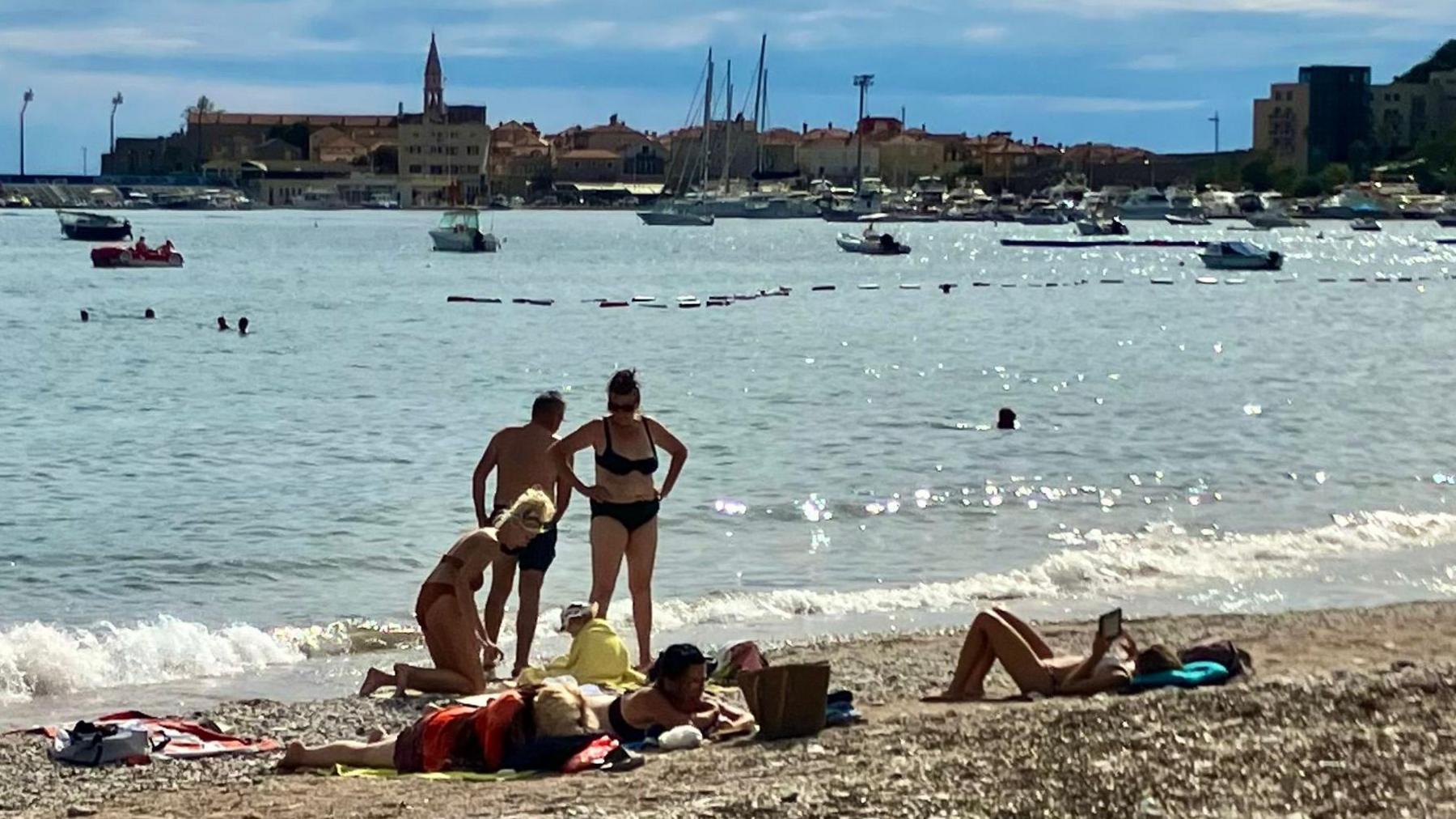
- Published7 October 2024
